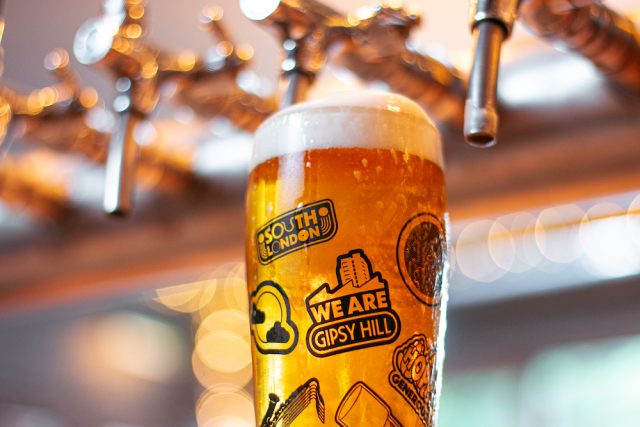This website uses cookies so that we can provide you with the best user experience possible. Cookie information is stored in your browser and performs functions such as recognising you when you return to our website and helping our team to understand which sections of the website you find most interesting and useful.
Carbon negative beer launched by Gipsy Hill
South London brewery Gipsy Hill claims to have made the first ever carbon negative beer by using barley grown through regenerative farming and recaptured hops.

The beers, Swell Lager and Trail Ale, have managed to achieve carbon negativity without the use of controversial carbon offsetting schemes, which uses techniques such as the planting of trees to ‘offset’ the energy use in a production process, the brewery said.
According to an analysis by a carbon accounting firm, Zenero, the carbon footprints of the beers are -40gCO2e for Swell Lager and -30gCO2e for Trail Pale per pint respectively. A typical pint of commercial lager produces at least 350g of CO2, with many craft IPAs starting at 500gCO2e, it claimed.
Lifecycle
The complete carbon lifecycle of the beers was also accounted for, from the growing of the ingredients to the end of life of packaging, meaning drinkers can be sure the carbon negativity is holistic from grain to glass.
The beers use certified regenerative barley that is sourced from Wildfarmed, which works with farmers to implement regenerative practices such as intercropping, cover cropping, and reduced tillage, which improve soil health, reduce erosion and sequester carbon. These practises mean the process of farming the barley sequesters more carbon in the soil than it releases into the atmosphere.
The brewery then combined the barley with the ‘recaptured’ hops, which are hop material removed after fermentation from a previous batch of beer, and reused to bitter and flavour a new batch. Typically, these would be thrown away, meaning their carbon impact is currently zero.
The beers are due to be sold at the brewery’s taproom and bar in South London as well as the Understudy at the National Theatre, Kerb Street food markets, Seven Dials Market and a selection of Youngs venues around the UK.
Climate crisis
Sam McMeeken, co-founder of Gipsy Hill Brewery, said “great beer should be guilt-free” and he was determined to “find a way to do it more sustainably”.
He said: “Our new Trail Pale and Swell Lager mean that, for the first time, our drinkers can enjoy a pint safe in the knowledge it’s actively improving the environment and helping solve our climate crisis.
“By truly embedding sustainability into our brewing process, rather than simply offsetting emissions, we have created a blueprint for sustainable beer range, but the wider food and drink industry.”
Wildfarmed’s co-founder Edd Lees said it wanted to work with Gipsy Hill to not just make a beer that tastes great, but was great for the plane too.
He said: “We’re making it easy for people to help solve some of the world’s biggest problems — like climate change and food security — by consuming food & drink made with ingredients from healthy, regenerative soil. Our Wildfarmed barley sequesters carbon, increases biodiversity, and is the gold standard of regen agriculture.”
Zevero’s co-founder Ben Richardson said the Gipsy Hill work “should be seen as a model for the whole industry to move away from the reliance on offsets in climate programmes.”

